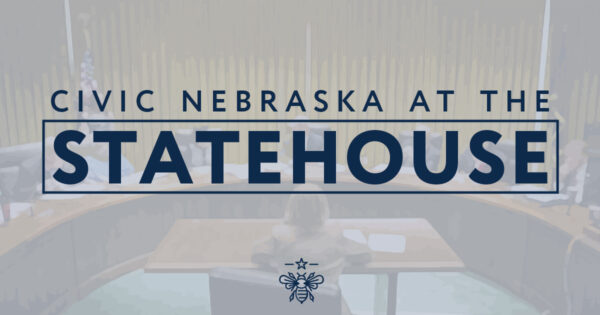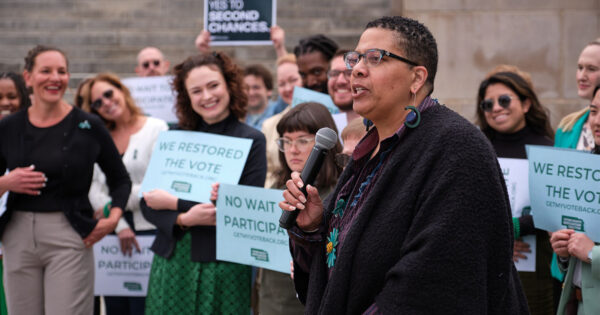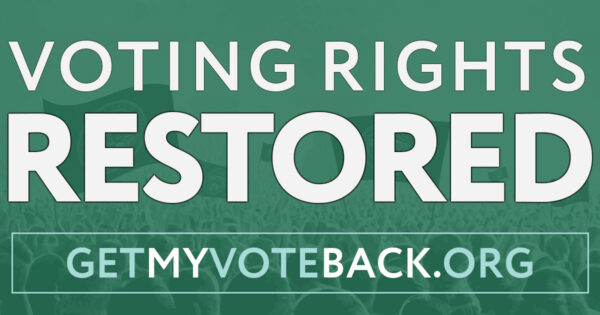Today, our work at the State Capitol took us to a hearing with the Executive Board of the 106th Nebraska Legislature. There, we testified in support of a pair of bills related to Nebraska’s redistricting process, which will take center stage in 2021 following the completion of this year’s census.
The bills, LB1207 and LB1157, were introduced by Sens. Tony Vargas and John McCollister of Omaha, respectively.
LB1207 will enact the Redistricting Act, creating substantive and procedural guidelines to be followed by the Redistricting Committee and by the Legislature in the upcoming redistricting process.

Westin Miller, Civic Nebraska’s director of public policy, told the Executive Board that as the group considers whether to advance the bill to the floor of the Legislature, it’s worth considering that redistricting is a very unique topic, particularly in a state like Nebraska.
“Most of the major issues this body discusses – property taxes, school funding, prison overcrowding, and even other election issues like voter ID and Vote By Mail – are constantly relevant,” Miller told the committee. “They have a consistent annual queue of bills, and are therefore surrounded by constant chatter. (But) redistricting is different. This once-a-decade process is dense, it can be confusing, and regardless of the reality, it is perceived by many as a highly partisan process lacking transparency.”
Advancing it to the full Legislature, regardless of whether Executive Board members ultimately support it or not, allows Nebraskans to see a robust floor debate about redistricting.
“Give this once-a-decade issue at least three hours of discussion,” Miller told state senators. “That discussion has tremendous value to the state, regardless of what happens.”
On LB1157, Miller described “prison gerrymandering” – the policy of counting incarcerated Nebraskans in the census as residents of the city or county where they are confined – as “one of those issues that feels fundamentally wrong to many Nebraskans. A prison is not a home.”
The bill ultimately will improve public trust in elections. Currently, counting people as residents of the prisons in which they’re incarcerated, rather than the communities from which they actually identify, is “a surefire way to erode public trust in elections,” Miller told the committee.
Fortunately, the U.S. Census Bureau now offers tools to count inmates at their pre-incarceration addresses. Seven states already have committed to using that tool.
“I’d encourage you all to take advantage of this opportunity to improve public trust in Nebraska elections,” Miller said.
Read our full testimony on each bill here: LB1207 | LB1157
We’ll keep you updated on what action the Executive Board takes.




